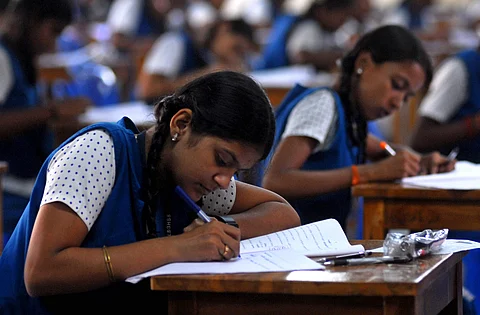

Although the Supreme Court earlier this month upheld the 10 per cent Economically Weaker Sections (EWS) quota in educational institutions and government jobs, the Tamil Nadu government has announced that it will not implement this reservation. Educational institutions in the state seem to concur with this decision and say that they already have provisions that ensure they take in students who are from financially poor backgrounds.
"We do not have a quota like that but we take in a lot of students from the EWS background through scholarships. We think this is the best way to approach the situation," said Dr S Raja Samuel, Principal at the Madras School of Social Work, Chennai. The problem arises while determining who falls under this reservation category, he elaborated. "Students from reserved communities like SC, ST and OBC need to show a certificate to avail the reservation. For EWS too, students have to show an income certificate but this is easier to get. To avoid this problem, we do not give EWS reservation," the Principal added. The official stated that while they might not be "for" the quota in a structured way, they will support students from that category in an unstructured manner.
Supreme Court judgment
To recall, the Supreme Court, on November 7, upheld the 103rd Amendment to the Constitution that provides 10 per cent reservation for EWS in educational institutions and government jobs. The amendment was upheld by a 3:2 majority on the five-judge constitutional bench of the Supreme Court comprising Chief Justice UU Lalit and Justices Dinesh Maheshwari, Bela Trivedi, JB Pardiwala and Ravindra Bhat.
Justice Maheshwari noted that the reservation for the EWS category did not violate the basic structure of the constitution by breaching the 50 per cent limit on reservations. He remarked that the limit was not "inflexible," as per a tweet by LiveLaw.in. The EWS category also excludes individuals belonging to the Scheduled Castes, Scheduled Tribes and Other Backward Classes. The majority view of the verdict also held that this exclusion did not violate the Constitution either.
Women's Christian College in Chennai too admits students from the EWS background, as part of their "mission". "Those students who fall under the EWS background, if they are deserving and meritorious, then we give them admission. We don't need a Supreme Court or High Court judgment. It is something that is part of our college's mission to give admission to such students," an official from the college said.
However, a few educational institutions said that they only follow the cut-off marks system, wherein, only those students will be given admission if they pass the set cut-off marks. "The EWS quota is purely based on the basis of salary package, that is, economic background. This has to be changed first for it to be implemented," an official, from the Ayya Nadar Janaki Ammal College in the state, said.
Is there a problem with the EWS quota?
Education expert Jayaprakash Gandhi pointed out that Tamil Nadu already has a 69 per cent quota in education and jobs and a case is currently pending in the apex court against the reservation system. "If an extra 10 per cent were to be added then this would impact admissions in professional colleges because the state already has internal reservations," he added.
Other activists like Kiran Kumar, President of the All India OBC Students Association (AIOBCSA) agreed and explained further that to implement such a reservation policy, one needs to know data about how many people come under this category. "There have been so many movements and discussions like the Mandal Commission, but there is no percentage of the number of economically weaker sections within the upper caste. So our concern is on what basis is this 10 per cent being divided?" asked Kiran. He clarified that they are not against reservation for EWS, but they demand a proper census to determine the EWS population. If not a census, they demand that the EWS category be carved out within SC, ST and OBC and they be given the same reservation as well, he said.
According to reports, a socio-economic caste census was carried out in 2011 in the country. Following this, reports stated that according to an affidavit filed before the top court on September 21, the Union Ministry of Social Justice and Empowerment said that it is not feasible to collect information on the Backward Class of Citizens (BCC) in the forthcoming census.
